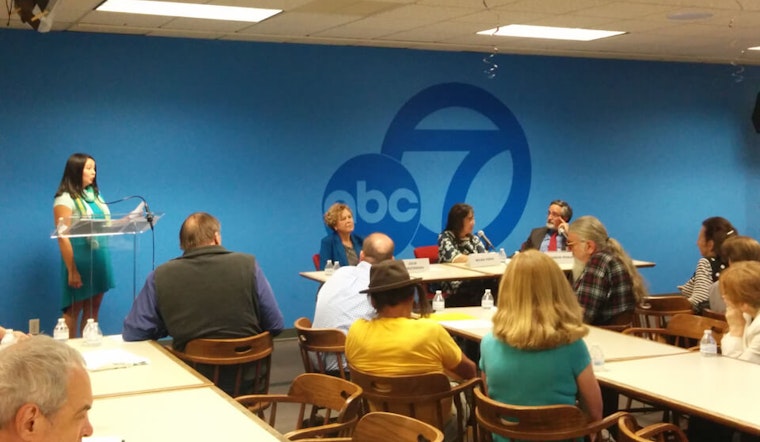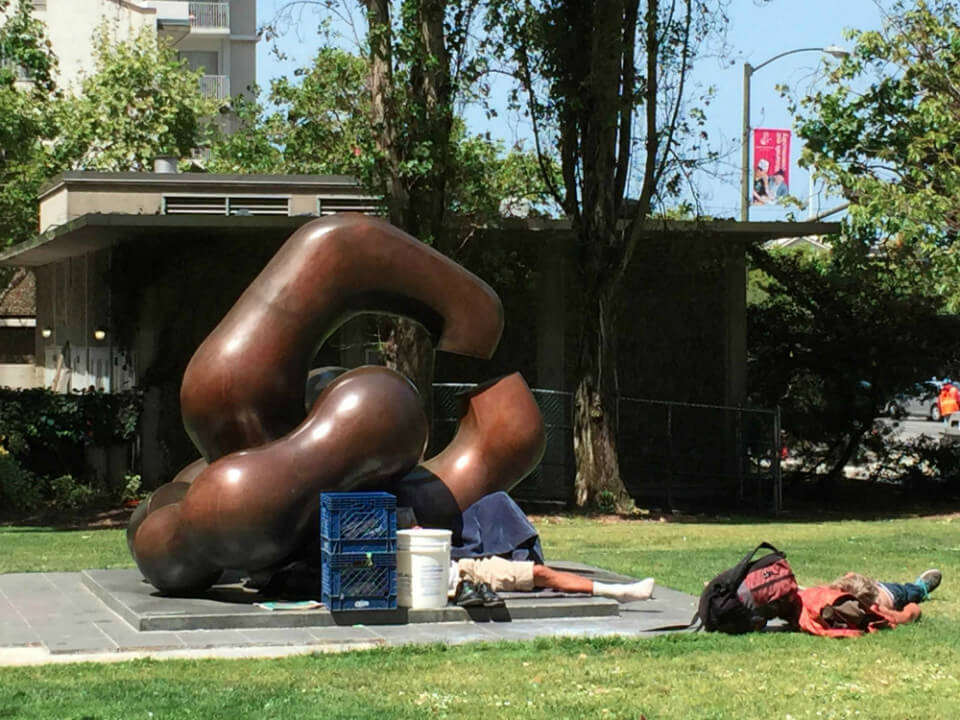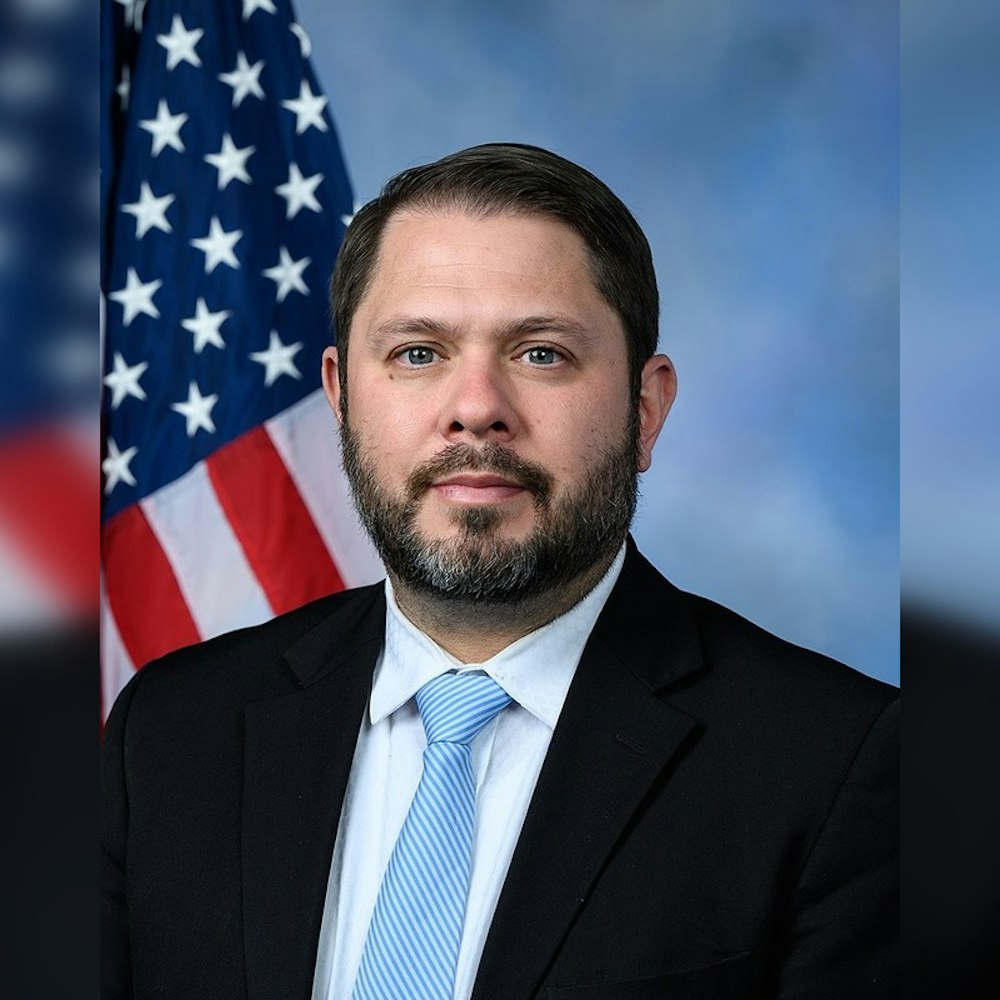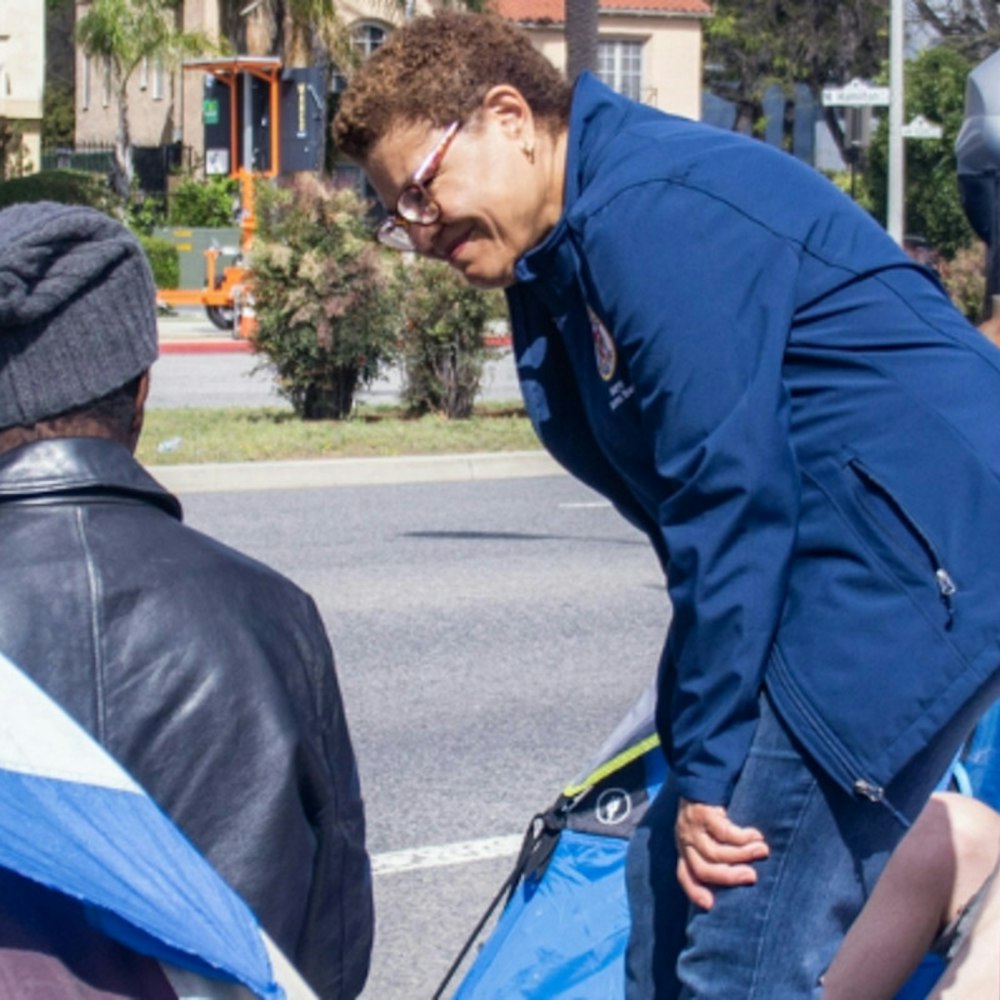
Election Day is just a couple of months away and the battle for the District 3 supervisor seat is heating up. The district's incumbent, Supervisor Julie Christensen, and challengers Wilma Pang and Aaron Peskin joined the Golden Gateway Tenants Association and Barbary Coast Neighborhood Association Thursday evening for a forum aimed at dissecting their opinions on the most pressing issues concerning district residents.
Hoodline’s District 3 Editor Geri Koeppel moderated the forum, giving each candidate an an opportunity to share a brief opening statements, answer five questions developed by the hosting associations, and field a few audience-submitted questions before issuing closing remarks.
Kicking off the opening statements, Christensen highlighted her background as a local business owner and neighborhood advocate, from planting trees to championing multi-million dollar projects in the district, including keeping Coit Tower open and accessible, renovating the North Beach public pool and and rebuilding the North Beach library. Christensen also assured the crowd that she was not pleased with the way the 8 Washington development played out and has been working from the beginning to ensure the 88 Broadway affordable housing development shows the community how she does things differently.
Next, Pang discussed her background as a 35-year Chinatown resident, mother, grandmother and teacher, stating that her its in her nature to bring out the best of people. One of her biggest accomplishments, she said, has been organizing navigating cultural differences to organize a group of musicians to play together at Portsmouth Square. She also noted that tourism is the district’s number one industry, bringing $7 billion to city coffers each year, but no one is paying attention to it. As supervisor, she would work to promote the arts, preserve cultural heritage and promote tourism.
In his opening statement, Peskin said that District 3 constituents are concerned that City Hall is dominated by insiders and special interests. Six years after leaving the Board of Supervisors, he’s running again because “San Francisco needs programmatic checks and balances at City Hall” and independent leadership that listens to and speaks for the people, he said. Peskin used the citywide vote on the 8 Washington luxury condo development as an example of City Hall ignoring constituents' needs, and growing budgets for homeless services and and few results as evidence that City Hall needs more transparency.
 A rendering of the 8 Washington development that voters rejected. (Image: San Francisco Waterfront Partners, LLC)
A rendering of the 8 Washington development that voters rejected. (Image: San Francisco Waterfront Partners, LLC)
Many of the evening's questions tackled the housing crises, with the first asking for the candidates’ stances on Proposition A, which — if approved by voters in November — would would authorize the city to issue up to $310 million in bonds to fund affordable housing programs. All of the candidates were in favor of the proposition.
Christensen noted that the 88 Broadway development partially depends on that money and the right bond structure is in place to ensure property taxes do not increase as a result.
While Pang stated that “the bond itself is good” she questioned the stated budget, noting that the city has a track record of allocating funds to a project and going drastically over budget.
Peskin also supported Prop A but said to seriously solve the housing crisis in San Francisco, people also need to vote for Prop F and preserve the city’s existing housing stock. While he has no problem with people renting their units or houses for a weekend, the problem is entire buildings are being taken off the market and residents are being evicted. While Mayor Ed Lee is against Prop. F, we need it, he argued.
In regards to how to increase housing density in the already packed district, the candidates had similar solutions.
Christensen suggested building around the edges and noted that the Board of Supervisors unanimously approved legislation to allow the building of in-law units across D3 and D8. The BOS is also working to incentivize the creation of more rent-controlled housing, she said. In response to Peskin’s stance on Prop F, she argued that if Prop F passes, the city will have to go back to the ballot every time it wants to tweak the short-term rental law.
Pang highlighted a number of lots where additional housing could be built, including Muni’s Kirkland Bus Yard at Powell and Beach streets and the Franciscan Reservoir on Russian Hill.
Peskin agreed with Pang on finding empty lots, especially those owned by the city. He also stated that “when City Hall fails us, the only place we have to go is the ballot,” bringing attention back to the need for a citywide vote on 8 Washington and arguing that the BOS is not requiring developers to build higher percentages of affordable housing.
Moving on to homelessness, Koeppel asked the candidates who they think should be held accountable for the millions of dollars the city is spending on homeless services.
 Photo: Geri Koeppel / Hoodline
Photo: Geri Koeppel / Hoodline
Pang argued that appointing a czar with a budget to solve the problem, as City Hall normally does, is the wrong solution.
Peskin stated that when he was on the BOS, he and his colleagues went through the budget with a fine-tooth comb, asked tough questions and held the executive branch accountable for shutting down failing programs. He is also in favor of creating more Navigation Centers, he said (a homeless shelter program that allows people to move in with their partners, friends and pets).
Starting with short-term solutions, Christensen said her office has increased the number of patrols and is successfully moving people from the neighborhood to the Navigation Center, which is where she is focusing her efforts. She also noted that more Navigation Centers are coming, the Mayor’s Office has leased 500 rooms for people to move into from the Navigation Center, and an accountability study is nearing completion so the BOS can understand which programs are working and where money is being spent.
The candidates were then asked to share their solutions for combatting rising crime in the district.
Peskin said that it comes down to relationships and holding the police department accountable. Adding police officers costs taxpayers dearly, and he’d like to the police department hiring civilians to handle tasks that can free up sworn officers. Peskin also noted that he voted for increased foot beat patrols, which decreased crime in the neighborhood and help build relationships between constituents and their regular beat officers.
Christensen agreed that more beat cops are needed, and said the BOS recently voted to add more officers. She agreed with Peskin that when it comes to curbing crime, relationships are key and said she is working closely with the district's police captains to prevent crime, especially the high number of auto burglaries targeting rental cars, and secure more meaningful sentences for offenders.
From her experience working in Chinatown, Pang said the neighborhood's seniors are extremely vulnerable. She's working to help people overcome cultural barriers, like keeping cash at home rather than the bank and refusing to call the police, when incidents do occur.
Next the forum moved on to ways to ease traffic, another sore-spot for the district.
Christensen noted that the E-Line is now open and assured residents that she’s pushing to launch service seven days a week months earlier than originally slated, as adding more trolleys on Embarcadero will help reduce vehicular traffic. She also noted that after being appointed supervisor, she sat down with the SFMTA to review all 19 separate transit projects in the area and helped the agency look at the neighborhood as a whole.
Considering congestion in Chinatown, Pang suggested fining business owners who are blocking sidewalks.
Peskin said that he voted for the Central Subway seven times while in office, but while he supports it extending all the way to Fisherman’s Wharf, he wants the public to have the opportunity to provide meaningful input and no displacement of residents. He also believes that the city is shirking its planning responsibility surrounding managing construction and major events that impact traffic in the area, he said.
Before moving into closing statements, the candidates fielded a handful of questions posed by audience members, including their stances on San Francisco's sanctuary city law and the Salesforce "Dreamboat" that will house roughly 2,000 Dreamforce attendees on the Bay next week.
 Celebrity Infinity (Photo: Wikipedia)
Celebrity Infinity (Photo: Wikipedia)
Regarding sanctuary city, Peskin said the policy is complex and was formed in the 80s when an influx of Central American refugees were fleeing death squads. If he were in office, following the death of Kathryn Steinle, he would have assembled a "blue ribbon panel of experts and community members" to recommend solutions to change or tweak the policy.
Christensen took a different stance, arguing that the the city's high rates of homelessness and auto burglaries are the major factor in Steinle's death, not the sanctuary city policy, noting that the case involves a probable schizophrenic and an auto burglary that lead to an unsecured gun on the street. She also said that managing how the sheriff's department brings individuals to the city and how San Francisco deals with people living on the streets is key.
About the Dreamforce cruise ship, Peskin said that the floating hotel underscores the city's lack of comprehensive planning around major events, and impacts on the entire neighborhood need to be considered. He also recounted that in 1990 residents voted against hotels on their piers and this seems to go against that mandate.
Christensen said that while the decision was made before she was appointed to office, she does know San Francisco does not have enough hotel rooms for such large-scale events. While the city shouldn't be allowed to drop large events, like America's Cup or the Super Bowl, on the neighborhood and expect neighbors to just deal with the consequences, she said that with the right relationships the effects can be mitigated and other community benefits can be obtained to "ease the tough days."
On the same topic, Pang noted that given her focus on supporting tourism, she would support the cruise ship hotel.
Finally, each candidate gave their closing statements.
Pang wrapped up by reiterating her nurturing nature, and focus on listening and negotiating to bring people together.
Peskin concluded by stating that his candidacy "is about creating checks and balances at City Hall." His focus will be ensuring there are clean streets and sidewalks in the district every day — not just for major events— adding more Navigation Centers, decreasing gotcha-evictions and creating more housing for the middle, and implementing pedestrian safety measures.
Christensen argued that many of the initiatives Peskin highlighted are already underway, and she has the support she needs to make them happen. She prefers to negotiate with individuals before resorting to yelling and legislation, looks to squeeze community benefits out of projects wherever possible and doesn't always agree with Mayor Lee, she said.









